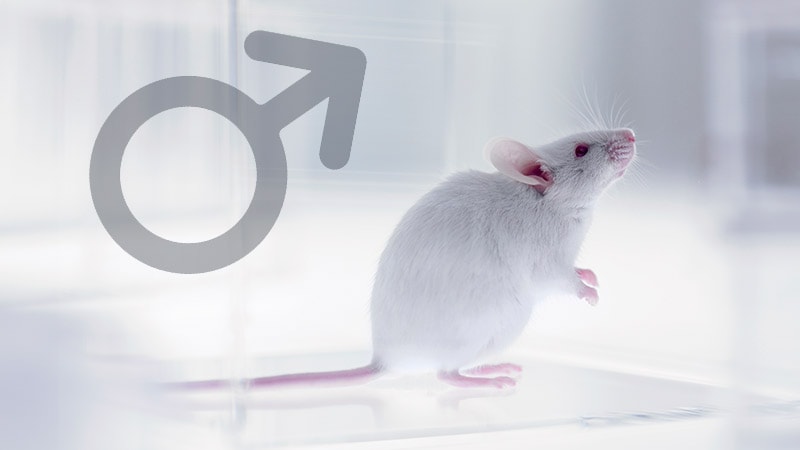Study Examines Merkel Cell Carcinoma in Non-White Hispanics Study Examines Merkel Cell Carcinoma in Non-White Hispanics
June 4, 2024More Women Report First Hip Fracture in Their 60s More Women Report First Hip Fracture in Their 60s
June 4, 2024
A new candidate has emerged in the quest for a male birth control pill.
Researchers at Baylor College of Medicine, Houston, developed a contraceptive that was 100% effective at reducing fertility in male mice after 21 days. And its effects were reversible. The drug targets a protein that’s involved in normal sperm production and fertility in both mice and men. The treatment in the study was an injection, but the researchers suggested it could be made into a pill.
The target protein — known as serine/threonine kinase 33, or STK33 — is a kinase, a type of enzyme, and a “well-studied class of drug targets,” said Logan Nickels, PhD, research director and chief scientific officer at the Male Contraceptive Initiative, a nonprofit that funds research for male contraceptive methods. (Neither Nickels nor the Male Contraceptive Initiative was involved in the study.) “We know that we can drug kinases and make therapeutics that target them.”
Plus, he added, the researchers used a structure-based design technique — meaning the drug was crafted to bind to the structure of the target protein — so we understand exactly how the molecule works.
“Scientifically, for male contraception, it is a breakthrough,” Nickels said. However, it’s still a proof-of-concept study, and we shouldn’t expect a human version to hit the market anytime soon.
“It’s not something that’s going to result in a product in the next 5 years,” Nickels said. “But it’s something that 10 years down the line could be another method in a method mix that men are looking for.”
Research efforts to find safe, effective forms of male contraception have been underway since 1970s. Several potential options are now in clinical trials including a hormone-suppressing gel called Nestorone/testosterone (NES/T) that men would apply to their shoulders and arms once a day, a once-daily hormone-suppressing pill (dimethandrolone), and an injectable hydrogel from Contraline that blocks the vas deferens and lasts about 2 years. The only approved forms of male birth control for men are condoms and vasectomies.
“The goal is to have a nonhormonal contraceptive option for men,” said Martin Matzuk, MD, PhD, director of Baylor’s Center for Drug Discovery and lead author of the new study.
Previous research showed that deleting STK33 leads to infertility in male mice, and a mutation in SKT33 has been linked to infertility in men. Both those mice and men were otherwise healthy.
To find a drug that blocked STK33, the researchers used DNA-encoded chemical libraries to sort through about 5 billion molecules. They modified one of the matches to make it more stable, potent, and selective, calling the molecule CDD-2807. As mentioned above, they used structure-based design: They determined STK33’s crystal structure — notably, they were the first to do so — enabling them to precisely model CDD-2807 to interact with STK33.
The research team treated mice with CDD-2807 and found that it could pass through the blood-testis barrier, but very little crossed the blood-brain barrier, Matzuk said — “one of the most fascinating findings of the work.” It also did not show signs of toxicity.
The treatment worked: “If we treat the mice for a week, we can reduce motility of the sperm in that short period of time,” Matzuk said. “At the same time, the sperm number is not affected.”
After 21 days of treatment, they tested the effects and found that none of the mice were able to impregnate female mice.
After 45 days of treatment, they saw defects in the sperm, indicating that the drug affected spermatogenesis. But after stopping the treatment, the effect was reversed. The mice were able to impregnate the females.
Plenty of questions remain, Nickels said — like “what the minimum effective dose is and how that impacts sperm parameters. What kinase selectivity is going to be necessary to actually develop this as a drug?” He noted that rigorously controlled animal studies will be needed to test for toxicity and effectiveness. (Matzuk plans to test CDD-2807 and similar compounds in primates.)
Still, it’s a worthy endeavor, Nickels said: “I think everybody should have the ability to choose when and if to have children. Reproductive autonomy is so important, and I think that providing that to more people can really result in outcomes that help make society better.”
